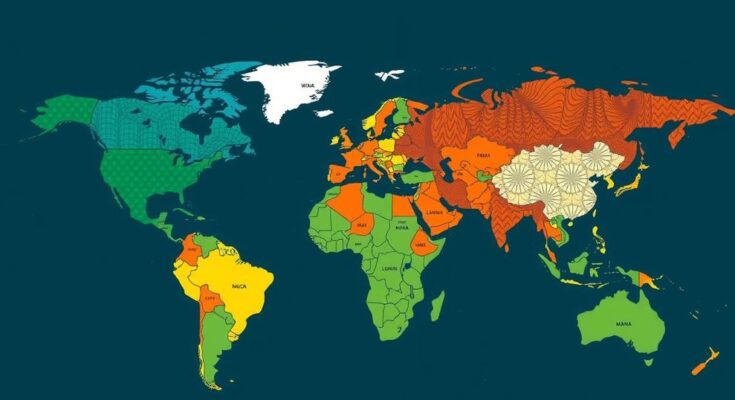Richer nations are beginning to compensate poorer countries for climate damage, exemplified by the support provided to families in Malawi affected by Cyclone Freddy. The newly established fund has pledged around $720 million but risks falling short amid growing climate crises. Ongoing negotiations at the COP29 summit address the specific funding needs of developing nations in navigating climate-related disasters and recovery efforts.
In southern Malawi, the devastating impact of Cyclone Freddy marked a significant event in the realm of climate change effects, displacing families and destroying homes. Amidst this tragedy, Christopher Bingala, a local subsistence farmer, exemplified the experience of many who struggle to recover from climate-induced disasters. Bingala received approximately $750—an initial disbursement under a new compensation framework designed to address climate change losses—enabling him to rebuild his home and relocate to a safer area.
This compensation program, rooted in the promise made by wealthier nations to financially support poorer countries grappling with climate change ramifications, has garnered more than $720 million in pledges. However, experts caution that this amount may be woefully inadequate as the severity of disasters increases. During the ongoing COP29 climate summit in Baku, Azerbaijan, negotiations are focused on determining the rightful financial contributions owed to developing countries as part of broader climate finance strategies.
The fallout from Cyclone Freddy was extensive, leaving approximately 650,000 individuals homeless in Malawi due to the unprecedented rainfall. Families endured substantial hardship, including food scarcity and displacement to temporary camps. Nevertheless, the financial assistance was a lifeline for Bingala and many families, allowing them to invest in housing, agriculture, and education for their children. According to advocacy groups, such as GiveDirectly, this funding is a crucial step in developing a comprehensive system to ensure that low-income countries, which have contributed minimally to global emissions, receive necessary aid.
As the toll of extreme weather events expands, low-income nations face mounting challenges, both economically and socially. Prime Minister Philip Davis of the Commonwealth of the Bahamas emphasized that debts incurred from climate-related disasters hinder recovery efforts, with his nation’s national debt seeing an increase post-Hurricane Dorian. With the expectation that funding needs will surge to approximately $250 billion per year by 2030, the urgency for effective climate financing grows, compelling richer countries to consider their role and the repercussions of inaction.
Moving forward, the allocation of the loss and damage fund is crucial. As of now, its guidelines are yet to be established, leading to discussions on its wider application—beyond just disaster recovery—to include essential relocations and the preservation of cultural sites. Davis aptly concluded that failing to act would result in severe consequences not only for affected countries but also for the global community, as climate refugees emerge and challenges proliferate across borders.
The concept of ‘loss and damage’ compensation stems from international discussions around climate change, particularly highlighting the disparities faced by low-income nations that contribute the least to global emissions. The growing recognition amongst wealthier nations of their responsibility to address the adverse effects of climate change on developing countries has led to commitments for financial support. As natural disasters become more severe and frequent, the need for mechanisms that facilitate financial assistance to those affected builds urgency in global climate negotiations.
The ongoing dialogue at COP29 emphasizes the need for concrete action in establishing a loss and damage fund aimed at supporting vulnerable nations. The initial payments, like that received by Christopher Bingala, reflect significant strides in international environmental responsibility. As the climate crisis escalates, it is imperative for wealthier countries to enhance their commitments, recognizing the interconnectedness of all nations in facing the evolving challenges posed by climate change.
Original Source: www.wprl.org




